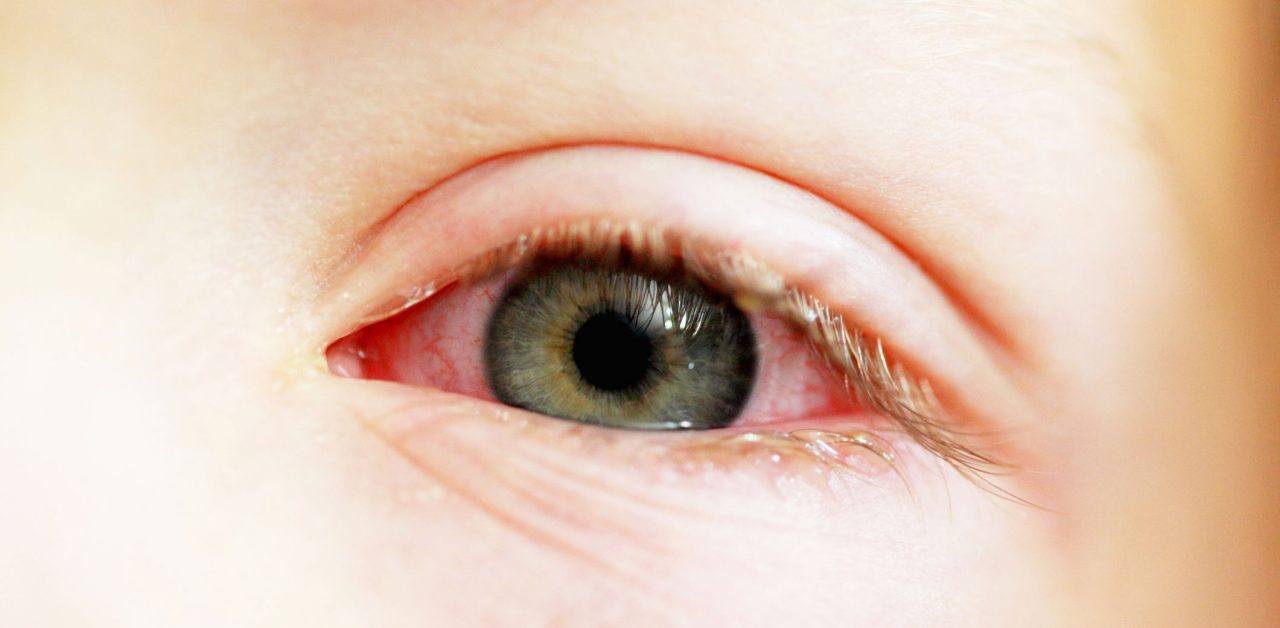How Long Is Pink Eye Contagious?

Is pink eye contagious? Also known as conjunctivitis, pink eye is a common condition, spreads easily, and is simple to treat. Learn what pink eye is and how long it is contagious.
Pink eye is one of the most common and easily treatable eye conditions that affect children and adults. Depending on the cause, medical treatment can be necessary.
Is pink eye contagious?
“Pink eye can be spread by direct contact from an infected person’s eye fluid or body fluids such as mucus from sneezing or a runny nose,” said Cheryl Franco, MSNEd, RN, of Children’s Hospital Los Angeles. “You can also get pink eye indirectly if you or your child come in contact with the infected person’s eye drainage on items like towels, pillowcases, and sheets.”
What is pink eye?
It’s called pink eye because when the conjunctiva (the thin mucous membrane that covers the front of your eyeballs and lines the inside of your eyelids) gets inflamed, blood vessels in your eyes become more visible, turning your eyes a pink or reddish color.
How long is pink eye contagious?
Pink eye can be caused by a virus or bacteria. When that’s the case, an infected person can be contagious if there is any drainage.
Pink eye can also be caused by allergens or irritants like smog or chlorine found in swimming pools. This form of pink eye is not contagious.
Pink eye symptoms in adults and children
- A pinkish or reddish color in the white parts of your eye or eyes. You can get pink eye in one or both eyes.
- Swelling of the white part and inside the eyelid
- Increased tearing or a yell-greenish discharge of pus
- An itchy or burning feeling
- Feeling that a foreign object is in your eye
- Waking up to crusty eyelids
- Cold or flu-like symptoms
- Excessive sensitivity to bright lights
If you have pink eye
In some cases, pink eye can clear up on its own. However, if you have any of the above symptoms for a day or two, make an appointment to see your physician.
If your doctor confirms that you have pink eye or you suspect you have it, make sure to wash your hands often. Also, don’t touch your eyes because it’s easy to spread. By touching your eyes and then touching someone else, you share the pink eye bacteria.
If you have a child with pink eye, make sure he keeps his hands away from his face. It’s possible for children with pink eye to also get ear infections because the same bacteria cause both problems.
Don’t share pillows, towels, or anything that touched your face. If you wear any kind of eye makeup, throw it away. The bacteria or virus can live a long while in a tube of mascara or in other eye makeup that you used.
If you wear contact lenses, throw them away, too, and switch to eye glasses, which can be washed with warm soapy water. Make sure you wash your hands first; you don’t want to spread any bacteria onto your glasses.
How to treat pink eye
To treat pink eye, your doctor may prescribe antibiotics. Some forms of pink eye can be treated with antibiotic eye drops. Medication usually works, but pink eye is still contagious during the first 24 hours of antibiotic treatment. If you don’t see any improvement after taking the medication prescribed by your doctor, make a second appointment.
Since pink eye is highly contagious, it’s important to treat it immediately. The sooner you deal with it, the less likely it will spread.
Updated:
March 26, 2020
Reviewed By:
Janet O’Dell, RN